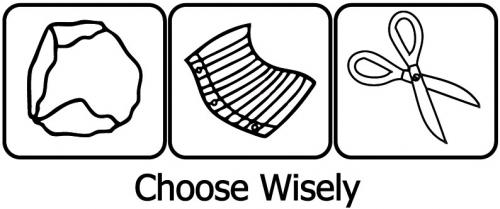Checking The Pulse Of The Kansas City Real Estate Market
If you’re upside down on your home, you may wake up some mornings thinking about walking away from your home. Millions of homeowners in the U.S. are faced with this dilemma. But I’ve never met anyone happy to simply walk away from their home, uproot their family and damage their credit. But for many, the mortgage owed on their home is too large of an obstacle to overcome… and these two options seem to be the only options to many. But there’s a third option that more and more homeowners are using to deal with housing problem — that option is a Short Sale.

With a third option in the mix, it’s a lot to consider but just know that many homeowners who are successful in selling their home in a Short Sale are able to finance another home as quickly as two years down the road. That possibility alone is exciting to many who were sure they weren’t going to able to get financing on another home for years to come. Many homeowners will also ignore the Short Sale possibility because they don’t have the money to pay the closing costs. When I explain to sellers that their lender will pay all of the closing costs, including the real estate commission, most are very surprised. If they’re going to accept a Short Sale, your lender UNDERSTANDS you don’t have the money to pay these costs. So they factor them in when considering the Short Sale.
If you’re going to achieve a successful Short Sale, you’ve got to get your home under contract with a buyer. From there, you’ve got to submit the contract to your lender for review. Why would a lender agree to accept a Short Sale? Because if you aren’t able to continue making your payments, they realize that foreclosure is the other option. And lenders don’t want more REO properties on their books. When deciding to accept a Short Sale, the lender will have the home appraised – hopefully factoring in issues with the home – and decide whether it makes sense to accept the Short Sale (or decline it and foreclosure on the property and sell it later once they’re in control of the property).
The first step to getting the process moving is hiring a listing agent. Selling a home in a Short Sale is much different from a typical resale transaction and you’ll absolutely need an agent who knows what they’re doing. The initial list price of the home will need to be at market value, though the home is unlikely to generate interest at the initial list price. You need to start at market value however to show your lender you’re doing all you possibly can to sell the home for as much as possible. After a short amount of time on the market, you’ll want to start dropping the price incrementally until you locate a buyer — remember Short Sale buyers are not going to pay market value for a home that has to go through the unpredictable Short Sale process.
To make the Short Sale process as smooth as possible for sellers, I have a Short Sale specialist in my group to negotiate with your lender (with your approval). So while I’m busy working to sell the home and get it through the typical sale process, my negotiator is working with your lender to get their approval on the Short Sale. But don’t worry because I take care of the costs of having the negotiator working to move the process along. Buyer’s agents are becoming more aware of how the process works and asking questions up front. If a buyer’s agent senses the listing agent has no clue what they’re doing, they’ll likely advise their buyer clients to look elsewhere. So be sure you don’t just hire any agent and should you have any questions about the Short Sale process, please contact me to discuss your options.








38.982228-94.670792




